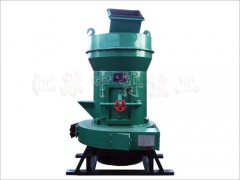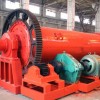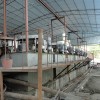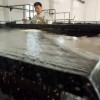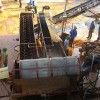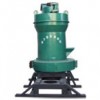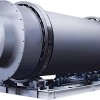Raymond mill also known as the hanging roller ring roll mill,is a ground-based grinding crushing machinery. Raymond mill has the advantages of stable performance, convenient operation, low energy consumption, product size of a wide adjusting range, thus widely used in coal, coke, gypsum, limestone, steatite, graphite, bentonite, kaolin, sulfur and pigments, chemical raw materials, chemical fertilizer, pesticide and other fine grinding. Raymond mill ‘s feed size is generally 15 to 20mm, grinding particle size is usually 0.044 -- 0.125mm.
Raymond Mill
Raymond mill structure features:
1.Raymond mill grinding system is composed of the crusher, bucket elevator, a storage bin, a host ( Raymond Mill ), tornado, blower, small cyclone, dust collector, an exhaust fan and a driving device.
2. Milling system process: raw material after primary crushing is sent to storage hopper by the bucket elevator, then uniformly quantitatively fed into the mill ( host ) through feeder for grinding. Blower from the bottom blowing air, fine powder by air to the upper part of the wind screen size analyzer, material of large size will be pushed back for again grinding while starch grain enters into the large cyclone separator along the airflow for being collected into products.
3.Raymond mill structure: host includes storage hopper, feeder, a ring roller grinding section, classifier ( wind screen ), chassis, frame transmission device, lubrication system.
Raymond mill operating principle:
After the materials are put into the grinding room of the main equipment, the grinding roll swings outward and presses closely upon the grinding ring due to the centrifugal force in rotation of the main shaft. The shovel carries materials to the space between the grinding roll and grinding ring, and materials are ground as the grinding roll rolls.
After being ground, the powder is selected by Separator via the cycle wind of the blower and the rough powder will be back to the grinding room for regrinding. The proper powder is brought into the powder collector together with airflow. The powder comes out as end products while the airflow goes back to the powder collector in cycling to make the machine work normally. The increased airflow comes out after purification.

